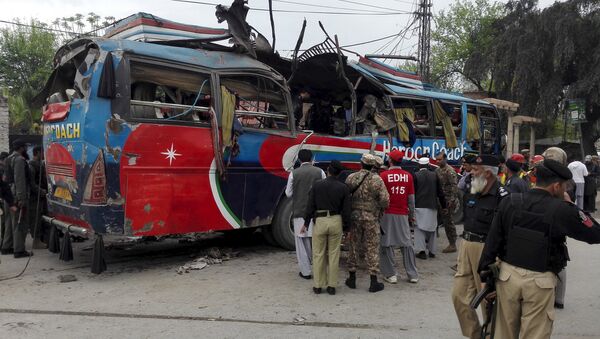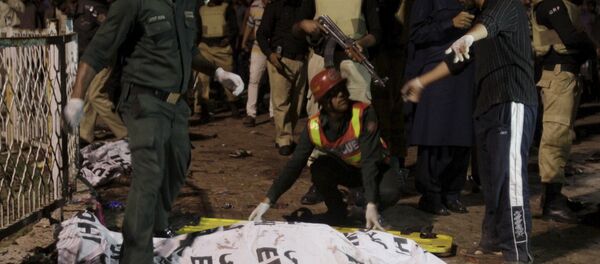Since Pakistan gained independence, the process of democratization is constantly being interrupted by military coups which pave the way for the Islamist movement.
Ergin wrote that in recent years Pakistan has seen very troubled times with terrorists on its borders, separatist movements, conflicts and anarchy. The judicial system and media have come under the influence of religious movements.
The Turkish author draws similarities between the current situation in Pakistan and Turkey by looking back at the history of Pakistan and explaining how terrorism has become so widespread in the country.
“When the Indian Muslim intelligentsia initiated the separation of the Indian sub-continent for the creation of Pakistan, it pursued the aim to reinterpret Islam in the modern nationalist approach in different areas — from education to law to state ideology,” the author wrote for the Turkish publication.
The politicians, intellectuals and authors of the first national project of Pakistan believed that they would be able to unite different ethnic and religious communities (although the vast majority of the population was Sunni Muslims).
“The State (public sphere) was to be managed by the secular, rational (modernist) principles. The private life was to be constructed on the bases of traditional principles, whereas the moral codex was to be based on religious principles.”
These tensions came into force when the struggle began to gain momentum with the Bengali ethnic group pushing for the creation of Bangladesh. The trauma of the defeat of the Pakistani army in 1971 and Bangladesh separating from Pakistan brought the supporters of Sharia into the center of Pakistani politics.
In 1973, due to rising tension with frequent riots from Ahmadis, Bhutto's government passed a law declaring Ahmadis as non-Muslims with the Islamist movement winning its first major victory in Pakistan’s history.
The second victory of Islamists was the union of industrialists and bankers (liberal circles) against Bhutto in Pakistan under the National Union of 1976 — 1977. The conjuncture of these years led to a coup of Muhammad Zia-ul-Haq.
“During Zia-ul-Haq's Islamist movement which was using the state-administrative capacity in Pakistan, the movement started to transform the cultural life of society and educational institutions in accordance with this concept,” the journalist wrote.
As the author of the article pointed out, during Zia-ul-Haq’s time the public sphere was changed to Islam. It was then turned into a real tool of economic benefits, especially for large companies.
During the ethno-religious civil war that began in Afghanistan against the secular government which was supported by the Soviet Union, under the pressure from the US, Pakistan got involved in the war using trained fighters from madrassas.
That gave birth to the Taliban and al-Qaeda and provided a safe haven for them. After September 11, the United States took aim at the Taliban and al-Qaeda and this time Pakistan had to fight them on its own when the terrorists crossed the Afghan border into Pakistan.
The ethnic and religious tension in Pakistan which the country faces right now has almost erased the Afghan border.
According to Ergin whichever state or society has political Islam dominating its political system that path always leads to the same result, the author concluded.




